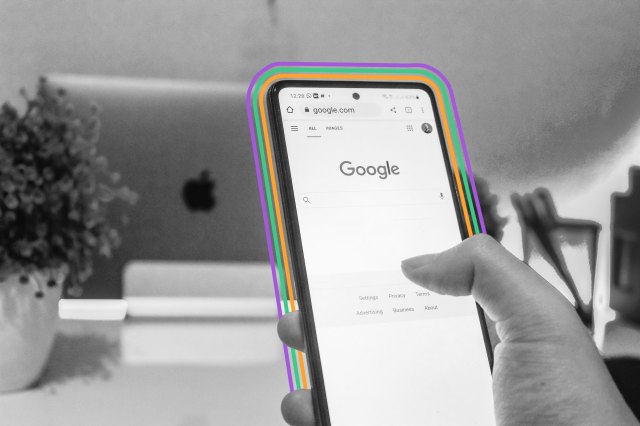
Google Started Out as a Project Called BackRub
Before Google, most search engines returned results based on how many times a keyword appeared in a page. The first seeds of Google were planted when co-founders Larry Page and Sergey Brin, then graduate students at Stanford University, started developing a way to return search results based on backlinks, or how often other pages referred to the page — which would imply that others thought the content was valuable. They called this project BackRub, and then took that technology, gathered investors, and founded what soon became Google in a rented garage.

“Google” Is a Play on a Very Long Number
Googol is 10 to the one-hundredth power, or 1 followed by 100 zeros. Mathematician Edward Kasner helped coin the term around 1930 when he thought the figure deserved its own name. He asked his 9-year-old nephew what it should be called, the boy came up with googol, and the name stuck. Nearly 70 years later in 1998, Google co-founders Larry Page and Sergey Brin decided to name their company after the number. When Page looked to see if the domain was available, he misspelled the word as “google,” and the rest is history.

Its Headquarters Are a Pun on a Much Bigger Number
If you thought googol was a hard number to grasp, try googolplex: 1 followed by googol zeros. Since “complex” can mean a building or group of buildings — like a corporate campus — Googleplex was an apparently unavoidable pun for the name of the company’s sprawling Mountain View, California, headquarters.
More Interesting Reads

Its Corporate Campus Has a Small “Museum” Devoted to a Dog
Software engineer Urs Hölzle started bringing his dog, a Leonberger named Yoshka, to work at Google in 1999. His co-workers soon fell in love with his canine companion, and Yoshka contributed to Google’s long-standing dog-friendly office policy — the Googleplex even has a dog park called the Doogleplex. Yoshka died in 2011, and later that year, Google named a cafe in building 43 after him. The cafe includes what the company calls a “museum” in Yoshka’s honor, displaying his favorite fluffy ball toy, collar, and office badge.

“Google” Is in Major Dictionaries
If you look up “google” in Merriam-Webster or the Oxford English Dictionary, you’ll find it listed as a verb, meaning “to use the Google search engine to obtain information” about something online. Both dictionaries added the word in 2006, although OED cites examples of its use dating back to 1998. (Buffy the Vampire Slayer, meanwhile, was the first TV show to use the term as a verb.)

Another Search Engine Could Have Bought Google for $1 Million
In the pre-Google days, AltaVista and Yahoo were the leading search engines. In 1998, Page and Brin tried to sell their company to both of them for $1 million so they could return to Stanford and move on. Yahoo wanted users to spend more time on-platform instead of clicking away to an external website too quickly, and AltaVista turned them down, too. Yahoo got a second shot at Google in 2002, and actually negotiated to buy the company this time — but when the selling price landed at $5 billion, Yahoo walked. Yahoo later sold to Verizon for $4.83 billion; meanwhile, Alphabet is valued at more than $1 trillion.

They’ve Attempted Multiple Social Networks
Google is known for pretty much everything Internet-related, from reading ebooks to manufacturing smartphones, but they never quite cracked social networking. It’s not for lack of trying, though — the company has made a few attempts.
A month before Facebook launched in 2004, Google rolled out Orkut, its first social network. It never really caught on anywhere except Brazil, where it had more users than Facebook until 2011. Google kept the site alive until 2014.
Google Friend Connect was a service that allowed website users to add social networking features to their sites using just a snippet of code. That launched in 2008, but a similar Facebook product edged it out and it was retired in most places in 2011.
Google Buzz lasted less than two years, from February 2010 to December 2011. It was a social network that integrated other places where users shared content, like photo-sharing sites and blog platforms. Its most recent attempt, Google+, stepped in for Google Buzz in 2011. It lasted until 2019, but had its own host of security issues along the way.












